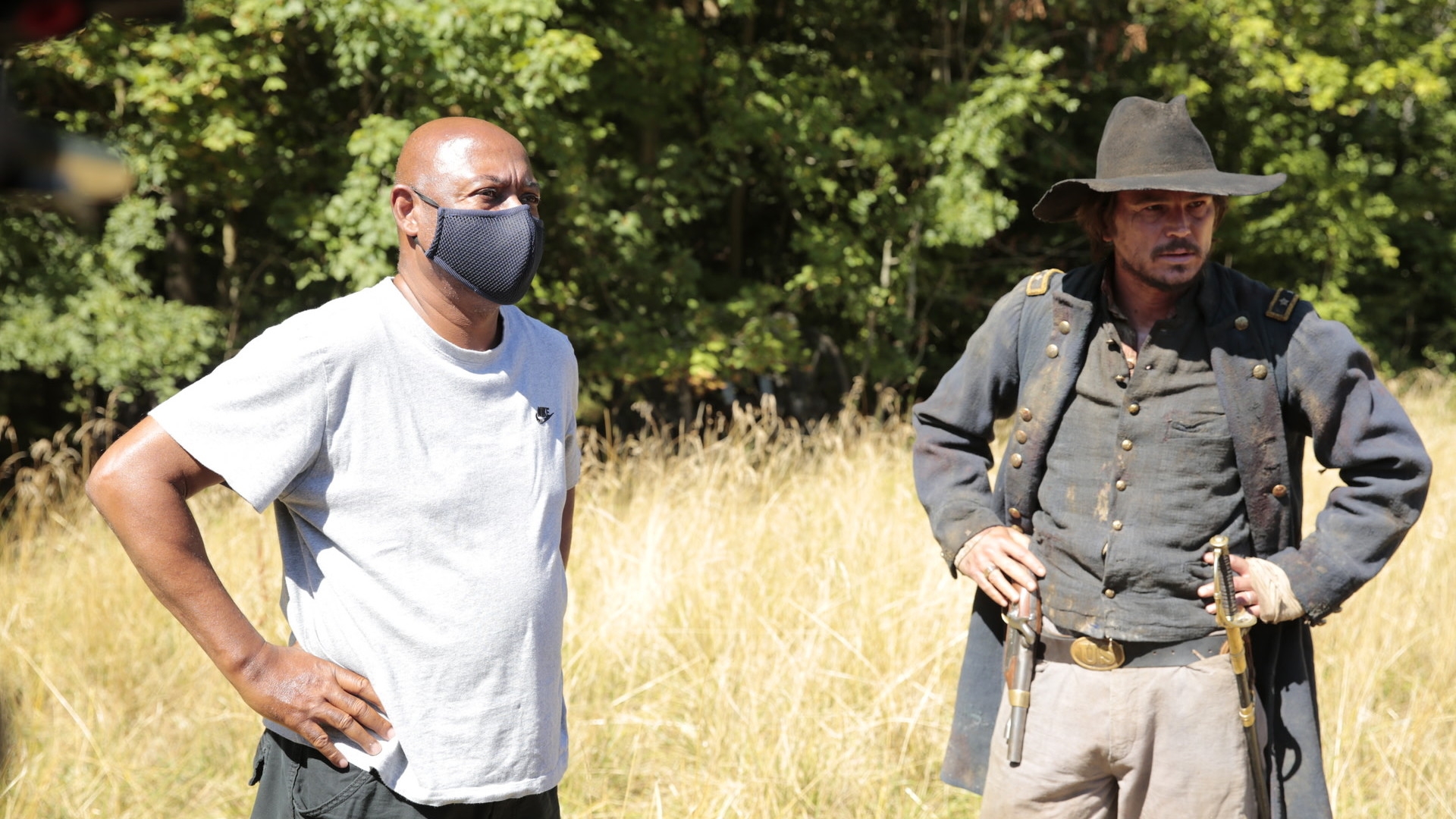Raoul Peck’s revelatory documentary Exterminate All The Brutes dispels the American dream


In 2009, President Barack Obama declared that “if you look at the track record… America was not born as a colonial power.” This isn’t just false; it’s the product of a dream. Director Raoul Peck (I Am Not Your Negro) delivers a forceful wakeup call in his masterful four-part documentary, Exterminate All The Brutes. The series traces America’s imperialist history back to its roots in European colonialism and genocide, and at every point along the way, Peck confronts and dismantles the mythical American dream. This “dream,” in reality, was exploitation masked as exploration. Already populated lands were invaded not “discovered,” and indigenous nations were forcibly relocated and outright massacred as the invaders spread across the continent.
Peck serves as the narrator for Exterminate All The Brutes, and his tone is rarely soothing. Through a combination of archival footage, Hollywood movie clips that recall the searing work of Marlon Riggs, scripted interludes, and animated scenes, Peck batters us with devastating and harsh truths. It’s not the American story even the most liberal-minded among us wants to accept as our undeniable past. Yet, it is, and Peck thinks enough of his audience that he doesn’t hold our hands. He describes how, after Christopher Columbus’ fateful arrival in 1492, 90% of the Indigenous population died from violence and disease in a little more than a century. That’s 55 million human lives gone, but there’s still debate over whether to continue honoring Columbus with a national holiday.
History is usually the first victim of a myth. Peck demonstrates how Western colonialism dehumanized Indigenous people as violent “savages,” and enslaved Africans as subhuman “brutes,” fit only for bondage, first as slaves and later as inmates in America’s prisons. This was intended to soothe guilty white consciences. Even whiteness itself was a European creation that not-coincidentally put those of European descent at the top of a human hierarchy. Some people are more equal than others, a perverse concept that George Orwell would later satirize in Animal Farm, and some people weren’t even people at all because of the color of their skin. America clothed itself in bright robes of freedom and democracy, which barely hid the Indigenous people whose land was stolen and the enslaved people upon which the nation built its vast wealth and power.
“Exterminate all the brutes” is the “very simple method of rule” that ivory trader Kurtz proposed in Joseph Conrad’s novella Heart Of Darkness. It’s also the title of historian Sven Lindqvist’s 1992 book, which inspired Peck’s exploration of Europe’s horrific past in Africa. Roxanne Dunbar-Ortiz’s An Indigenous Peoples’ History Of The United States, a 2015 American Book Award winner, provided the foundation for examining America’s deliberate genocide of the land’s original inhabitants. Peck doesn’t shy away from comparing manifest destiny to similar genocides in Nazi Germany and 1990s Rwanda.
The documentary feels fresh and current next to the ongoing debate over America’s past and iconography. Former President Donald Trump and Senator Tom Cotton have specifically attacked The New York Times’ 1619 Project for daring to challenge a whitewashed American mythology, one Trump would defiantly promote last year during a Fourth of July speech in the Black Hills, an area sacred to the Sioux. He boasted that “Americans are the people who pursued our manifest destiny across the ocean, into the uncharted wilderness, over the tallest mountains, and then into the skies and even into the stars.” Before the colonists arrived, this land wasn’t simply wild, untamed space. For millions, it was home, a home that was violently seized from them. Obama promoted a benign myth of America, one of a slow but steady march toward equality for all, but Trump embraced the country’s brutal history with sinister glee.
Trump seamlessly fits into the docuseries’ history of white supremacy. It goes beyond his declared affection for prominent American slave owners such as Andrew Jackson and Robert E. Lee. Peck, who was born in Haiti, describes himself as “an immigrant from a shithole country,” a pointed reference to one of Trump’s more repulsive comments. This view of Haiti, of non-white people in general, is consistent with colonial thinking, and Trump is the most openly colonial president in recent history. Peck juxtaposes past bigots and colonizers with Trump asking an audience in Poland in 2017 if “the West has the will to survive,” to defend its borders and preserve its “civilization from invaders who would subvert and destroy it.”
Peck presents an alternate reality where America’s original inhabitants do just that. Columbus arrives in a world that was new only to Europeans and before he can savor his “discovery,” the indigenous people slaughter him and his fellow invaders. This swift act of violence might’ve saved 55 million lives at the very least and prevented generations of enslaved Africans from dying in bondage, but, as Richard Pryor once said, that “only happens in dreams,” and colonizers killed millions of untold dreams in pursuit of a singular one.
Actor Josh Hartnett appears throughout Exterminate All The Brutes as “the tip of the genocidal sword of Western history.” It’s an effective narrative tool beyond the simple joke that all colonizers look alike. Hartnett plays several different characters, real and imagined. He’s at times sympathetic, menacing, and even just clueless, but always a looming threat to anyone not viewed as equal.
Peck challenges the self-serving history that the colonizers wrote themselves, but in doing so, he offers a warning for the future. L. Frank Baum is most famous for his book about a Kansas girl who has a grand dream, but few Americans know or care to remember that he frequently called for the extermination of Native Americans. After the Wounded Knee Massacre in 1890, when the U.S. Army killed 300 Lakota people, at least half of whom were women and children, Baum wrote, “Having wronged them for centuries we had better, in order to protect our civilization, follow it up by one more wrong and wipe these untamed and untamable creatures from the face of the earth.”
America was willing to expunge an entire people in service of a peculiar dream, one that had proven a nightmare for millions. Does the nation still possess this “will to survive”? Peck quotes Lindqvist in the docuseries’ haunting final moments: “You already know enough. So do I. It is not knowledge we lack.” What we do with the knowledge we gain from this amazing work is the question that Peck leaves unanswered.